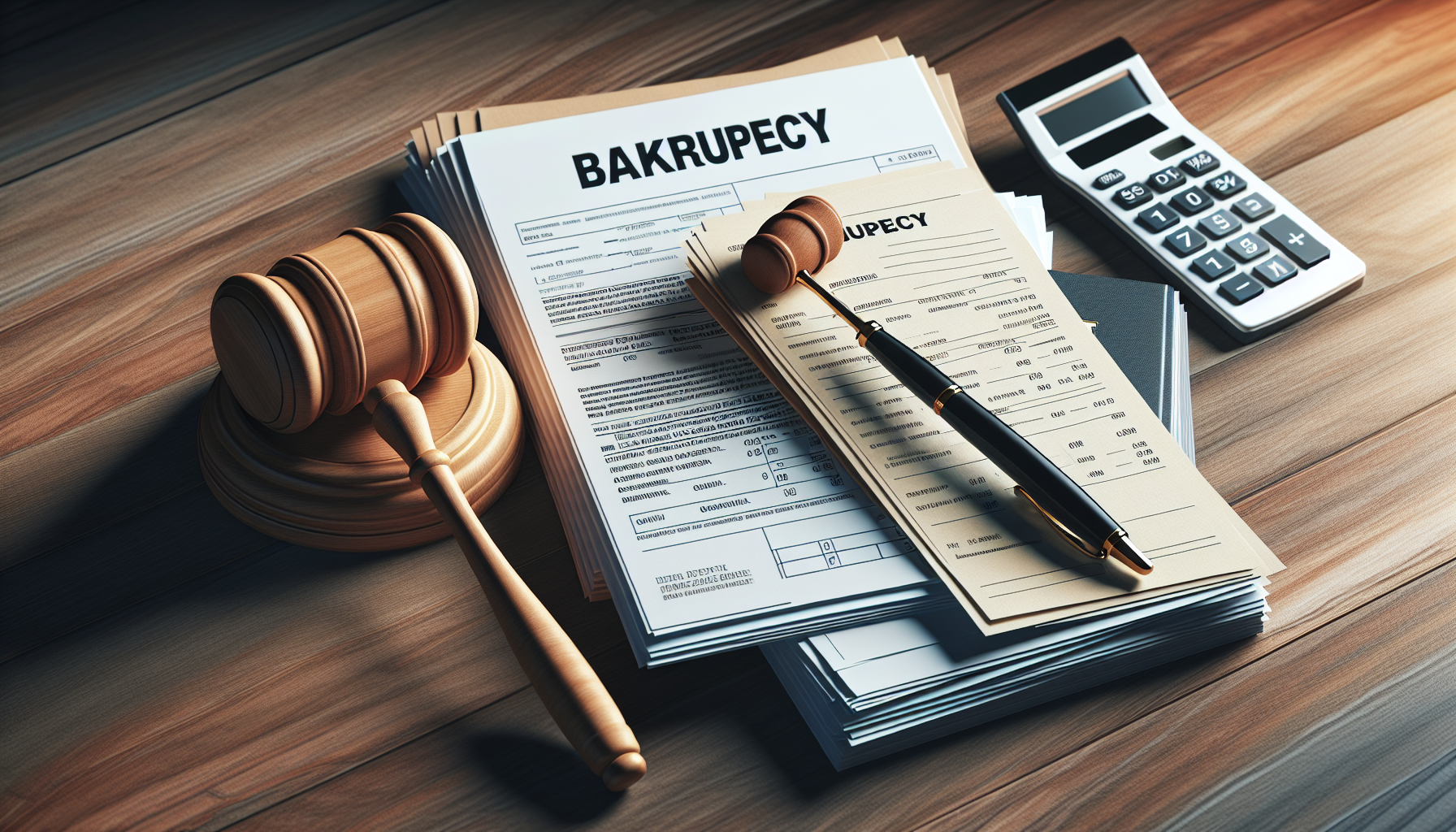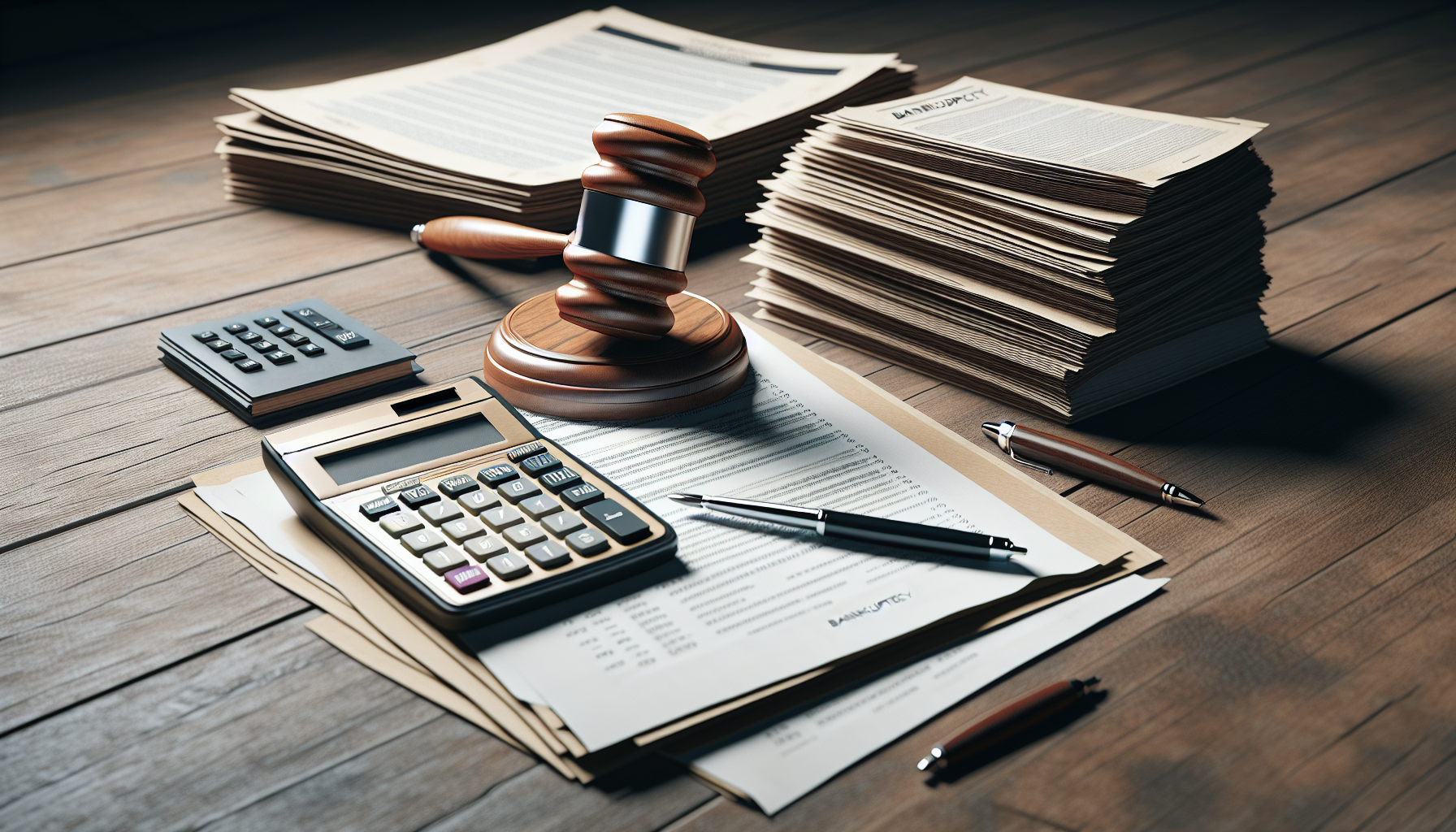
Bankruptcy, particularly Chapter 7 or 13, can feel daunting and overwhelming, especially for beginners. This comprehensive guide aims to illuminate bankruptcy counseling, providing clarity about the concept of Chapter Bankruptcy.
Different from other types of bankruptcies, each bankruptcy chapter carries its own specific attributes.
This focus, however, will be solely on ‘Chapter Bankruptcy’, one of the debt relief options often seen as the final call when wrestling with financial insolvency.
The necessity of considering Chapter bankruptcy often arises under particular financial insolvency circumstances.
Both businesses and individuals grappling with unmanageable debts may find this path as a practical solution. Embarking on the journey towards filing for Chapter Bankruptcy encompasses a balance of benefits and drawbacks. On the topic of bankruptcy counseling, debt relief options, and financial insolvency tips, a multitude of resources are available to ensure you make the best financial decisions.
Understanding the Role of Bankruptcy Counseling in Chapter 7 Bankruptcy
Bankruptcy counseling performs a fundamental role, specifically in Chapter 7 and Chapter 13 bankruptcy filing. This vital system gives a thorough evaluation, offering ‘repayment plan guidance’, hence it is imperative for people who are mulling over bankruptcy.
Legally, it’s essential to participate in counseling prior to any bankruptcy filing.
The primary motivation for this requirement is to provide individuals with enhanced financial management skills.
‘Restructuring debts advice’ shared during these educational sessions assists them in grasping the repercussions of bankruptcy and in making informed decisions.
This procedure primarily comprises understanding a person’s financial predicaments and investigating bankruptcy alternatives.
Every session focuses on distinctive topics, granting individuals the chance to inquire about their ‘personal bankruptcy strategies’. The proper comprehension of this process can positively influence the successful submission of a Chapter bankruptcy case.
On the flip side, neglecting the counsel’s suggestions could culminate in detrimental outcomes. Therefore, following the repayment plan guidance, restructuring debts advice, and personal bankruptcy strategies can lead to significant improvements in managing your financial situation.

Exploring Your Debt Relief Options Beyond Chapter 7 Bankruptcy
When grappling with overwhelming debt, bankruptcy often appears as the only way out. Its repercussions can be far-reaching and devastating, prompting many individuals to seek alternative legal solutions to manage their financial challenges beyond the traditional route of declaring bankruptcy.
One such path is credit counseling.
This legal solution provides a structured method for debt management.
Through understanding its process, individuals can gain essential tools for managing their debts in a more effective manner. Still, it’s important to note that while beneficial for some, it may not be a universal solution and could potentially affect credit scores.
Debt consolidation offers another avenue for exploring legal solutions. By condensing multiple debts into a single payment, it simplifies the process of managing outstanding debt.
Key to this method is understanding the insolvency process, as it comes with its own unique set of advantages and disadvantages. By understanding the insolvency process, applying legal solutions, and using debt discharge tips, it can effectively lower the interest rate.
Debt Management Solutions
- Credit counseling provides a structured method for debt management and can help individuals manage their debts effectively.
- Debt consolidation simplifies the process of managing outstanding debt by condensing multiple debts into a single payment.
- Understanding the insolvency process is key to effectively using debt consolidation as a legal solution.
- Applying legal solutions and using debt discharge tips can effectively lower the interest rate.
Financial Insolvency Tips: How Can They Help?
Financial insolvency is an intricate state, characterized by the inability to settle debts. This troublesome condition can transpire in diverse forms such as cash-flow insolvency and balance-sheet insolvency – each with unique and fortunate causes.
It’s during these testing times that filing guidance can prove essential, providing a structured path towards a fresh financial start.
The process of tackling financial insolvency involves openly declaring your personal or company’s incapability to fulfil financial obligations.
Employing an insolvency practitioner is crucial in ensuring the journey towards solvency is seamless. The value of expert advice cannot be overstated during these times, as it opens a gateway to a variety of debt liquidation alternatives.
Protection for those grappling with insolvency exists through legal provisions. By familiarizing oneself with these protective measures, one can establish a solid platform for recovery. Post-insolvency, the emphasis should be on designing fresh financial start strategies, exploring different debt liquidation alternatives, and providing comprehensive filing guidance.
Guiding Your Way Through Repayment Plan in Chapter 7 Bankruptcy
Chapter Bankruptcy introduces a structured Repayment Plan, offering legal advice to debtors seeking to regain financial stability. Legal advice plays a pivotal role in expanding basic understanding of the plan’s concept and workings, the first crucial step.
This plan provides a roadmap for repayment of debts, introducing protection strategies designed to mitigate bankruptcy damages and successfully navigate this complex financial journey.
Primed with knowledge, the preparation process for a Repayment Plan involves gathering necessary documents, using legal advice to lay out a feasible structure.
Identifying the best strategies to ensure that the plan is confirmed is a critical step that requires meticulous understanding for seamless proceedings.
The journey gets trickier, however, as maintaining adherence to the Repayment Plan presents challenges.
Implementing robust rehabilitation methods can be key for successful compliance with the structured plan. It’s crucial to use these rehabilitation methods to stay open-minded, readily tackling unexpected challenges, while adhering to legal advice and implementing protection strategies.
| Steps in Bankruptcy Process | Importance in the Process |
|---|---|
| Understanding the Plan’s Concept and Workings | First crucial step in regaining financial stability |
| Preparation for a Repayment Plan | Key for laying out a feasible structure and identifying the best strategies |
| Adherence to the Repayment Plan | Challenging but crucial for successful compliance with the structured plan |
| Implementing Rehabilitation Methods | Key for staying open-minded, tackling unexpected challenges, and implementing protection strategies |
Restructuring Debts: Is It A Good Alternative to Chapter Bankruptcy?
The financial burden leading individuals to consider bankruptcy can be overpowering. When faced with non-dischargeable debts like child support, student loans, and taxes, even a Chapter bankruptcy filing may not provide relief.
This reinforces a relentless cycle of debt.
In contrast, debt restructuring presents a viable alternative.
Here, the terms of a debtor’s obligations are reshaped, facilitating debt repayment. Non-dischargeable debts are addressed, enabling a way out of the incessant payment loop.
At this stage, engaging in credit counseling becomes beneficial. This service educates individuals on debt avoidance, imparts budgeting strategies, and assists in creditor negotiation.
Credit counseling seeks to equip debtors with vital financial management skills, offering a lifeline during difficult times.
Understanding trustee roles in debt management proves imperative. In a Chapter bankruptcy process, a court-appointed trustee supervises the debtor’s non-dischargeable debts and credit counseling, ensuring all trustee roles are carefully executed and adhered to.
Personal Bankruptcy Strategies: What You Need to Know
Personal bankruptcy is a critical manageable debt plan, specifically designed to control and reduce burdensome debts. By understanding its conceptual framework, light is shed on the nature of bankruptcy as a strategic plan for individuals declared legally unable to repay the debts they’ve accumulated.
Rising debt levels are a common reason many choose this debt management approach.
Diving into personal bankruptcy strategies, there are different types to consider, such as Chapter 7 and Chapter
Each comes with unique eligibility criteria. Evaluating the inherent advantages and disadvantages of each bankruptcy type is key to making an informed decision.
Chapter 7 bankruptcy merits special attention due to the intricate eligibility criteria it entails. This includes a meticulous evaluation of income, debts, and expenses.
Despite potential downsides like risk to assets, Chapter 7 can be an effective tool for those unable to meet their financial obligations. One aspect often overlooked but equally important, is implementing a manageable debt plan, meeting eligibility criteria, and acquiring tips for creditors meetings.
| Types of Personal Bankruptcy | Eligibility Criteria | Advantages and Disadvantages |
|---|---|---|
| Chapter 7 Bankruptcy | Requires meticulous evaluation of income, debts, and expenses | Effective for those unable to meet financial obligations, but poses risk to assets |
| Chapter 13 Bankruptcy | Not specified in the article | Not specified in the article |
| General Considerations | Must meet eligibility criteria and implement a manageable debt plan | Can reduce burdensome debts and control debt levels |
Legal Solutions for Financial Troubles: What Are Your Options?
Bankruptcy, recognized as a legal process, can involve both individuals and businesses unable to repay outstanding debts. This conduit comes in diverse types, essentially aiding in avoiding foreclosure.
It’s crucial to comprehend this process’s ripple effect on your credit score.
If you’re battling financial difficulties, numerous legal solutions are available to guide you.
One such option is a financial management course tailored for individuals in your predicament. When evaluating these legal options, understanding your financial situation becomes vital.
This comprehension can then pave the way for selecting the best solutions which may include learning about financial management.
The journey through the uncharted territory of bankruptcy forms can be confusing.
Every form bears unique significance and it’s imperative to fill them out accurately.
Understanding laws related to Chapter bankruptcy and their implications on your financial situation is crucial.
This deeper knowledge can be gained through a debtor education program. Different chapters such as Avoiding Foreclosure, Financial Management Course, and Debtor Education were thoroughly discussed.
The Insolvency Process: What Does It Mean for You?
The insolvency process is often daunting, embodying the ‘Bankruptcy estate concept’. This process involves pooling all the assets, both physical and financial, into a single legal entity.
Everything from real estate to items of personal value falls under this, alongside financial elements such as ‘unsecured debt repayment’.
This amalgamation could imply a serious knock to your credit score and make gaining future finances a formidable task.
One critical aspect of the insolvency process is ‘priority claims’. These are specific types of debts that stand higher in the repayment queue during insolvency.
The nature of these priority claims, be they tax liabilities or employee wages, could potentially have severe implications on the management of your personal or business finances.
Notably, the effects of the insolvency process will not be uniform for everyone.
These effects pivot vastly from one individual to another. Yet, generally, it leads to the process of addressing priority claims first in the bankruptcy estate concept, then focusing on unsecured debt repayment.
| Insolvency Process | Implications |
|---|---|
| Bankruptcy estate concept | Pooling all assets into a single legal entity |
| Unsecured debt repayment | Can negatively impact credit score and future finances |
| Priority claims | Specific types of debts that stand higher in the repayment queue, potentially affecting personal or business finances |
| Variability of effects | Effects of the insolvency process vary greatly from individual to individual |

Get a Free Bankruptcy Case Evaluation